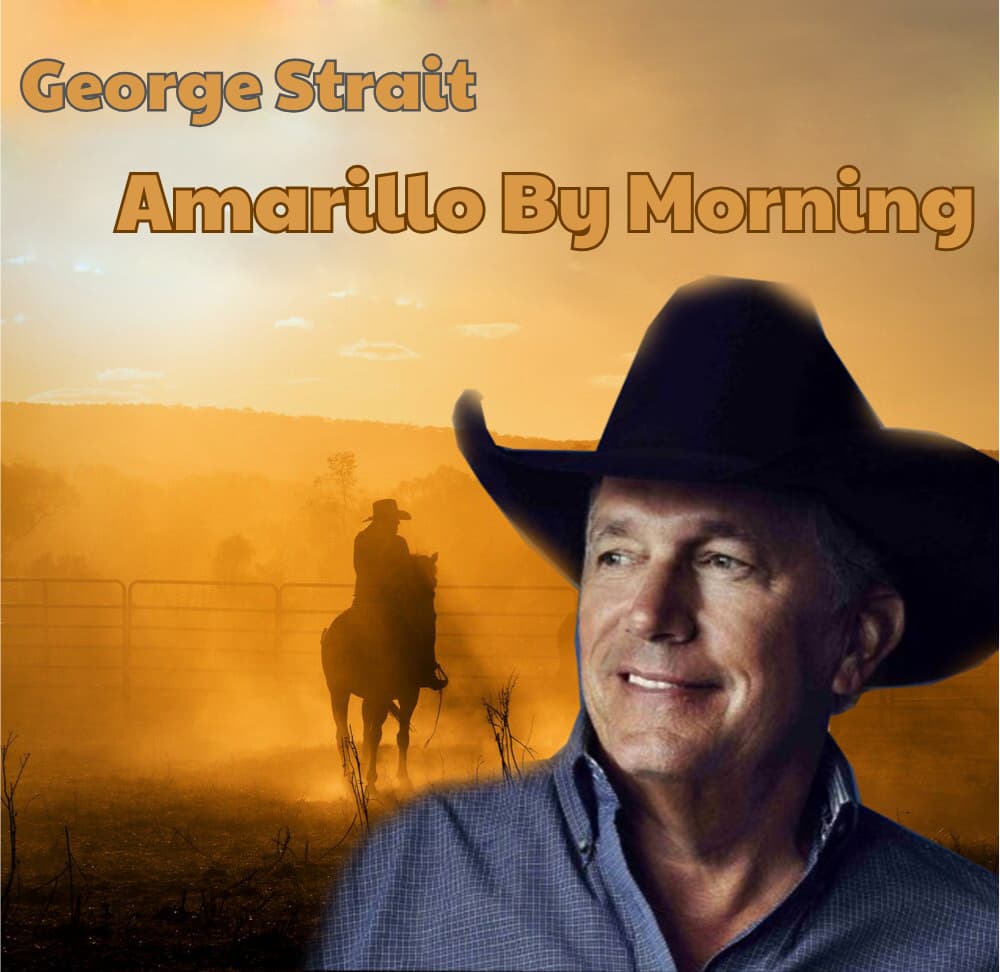
A Cowboy’s Anthem of Resilience and Unyielding Spirit
Ah, “Amarillo By Morning.” Just hearing those words together, especially when spoken with that familiar Texas drawl, conjures up a lifetime of images, doesn’t it? For so many of us, this isn’t just a song; it’s a touchstone, a melody etched into the very fabric of our memories, particularly those of us who came of age when country music truly sang of the soil, of honest work, and of the enduring human spirit. It’s a song that speaks volumes about the American West, about perseverance, and about the often-unseen struggles of those who make their living under open skies.
When we talk about “Amarillo By Morning,” we’re really talking about a cornerstone of country music, a track that, despite its humble beginnings, went on to achieve legendary status. Surprisingly, for such an iconic tune, its journey up the charts wasn’t an immediate rocket to the top. When George Strait released his rendition on his 1982 album, “Strait from the Heart,” it reached a respectable but not chart-topping No. 4 on the Billboard Hot Country Singles chart. This might surprise some, considering its eventual omnipresence, but it’s a testament to the song’s slow burn, its ability to resonate deeply over time, rather than flash brightly and fade. It wasn’t a fleeting pop sensation; it was a sturdy, enduring oak.
The true magic of “Amarillo By Morning” lies not just in George Strait’s peerless delivery, but in the story woven into its very lyrics. This isn’t an original Strait composition, a fact that sometimes gets lost in its association with him. The song was actually written by Terry Stafford and Paul Fraser, and Stafford himself had a minor hit with it in 1973. But it was George Strait who took this already poignant narrative and elevated it to an art form, imbuing it with a authenticity that felt almost autobiographical. The song paints a vivid picture of a rodeo cowboy, battered and bruised, far from home, facing another sunrise and another challenge. He’s leaving Oklahoma, heading for Amarillo, driven by a relentless dedication to his craft, despite the physical toll and the emotional ache of separation. It speaks of broken bones and broken hearts, of the endless cycle of travel and performance, all for the fleeting glory of eight seconds on a bull’s back.
For older listeners, this song evokes a powerful sense of nostalgia, perhaps for simpler times, or perhaps for a recognition of the grit and determination that defined a generation. It’s a reminder of the sacrifices made, of dreams chased, and of the quiet resilience required to face down life’s inevitable knocks. The cowboy in the song isn’t just a rodeo star; he’s an archetype of the individual pushing against adversity, picking himself up, dusting himself off, and moving on to the next challenge. The “yellow rose of Texas” he misses isn’t just a lover; she represents home, comfort, and the emotional anchor that keeps him grounded amidst the nomadic chaos of his life.
The meaning of “Amarillo By Morning” extends beyond the rodeo arena. It’s a universal anthem for anyone who has ever felt the pull of a demanding profession, the ache of being away from loved ones, or the sheer willpower needed to keep going when every fiber of your being screams for rest. It’s about the dignity of labor, the pursuit of a passion, and the unwavering hope that tomorrow will bring a better day, even if that day starts with another grueling journey. George Strait’s voice, with its smooth, unforced delivery, perfectly captures this blend of weariness and quiet strength. He doesn’t oversell the emotion; he simply presents the truth of the cowboy’s life, allowing the listener to feel the weight of every word. It’s why, even now, decades later, when those opening notes drift through the air, we’re instantly transported back, reminded of a time when music spoke directly to the heart, without pretension, without artifice. It’s more than just a song; it’s a legacy.